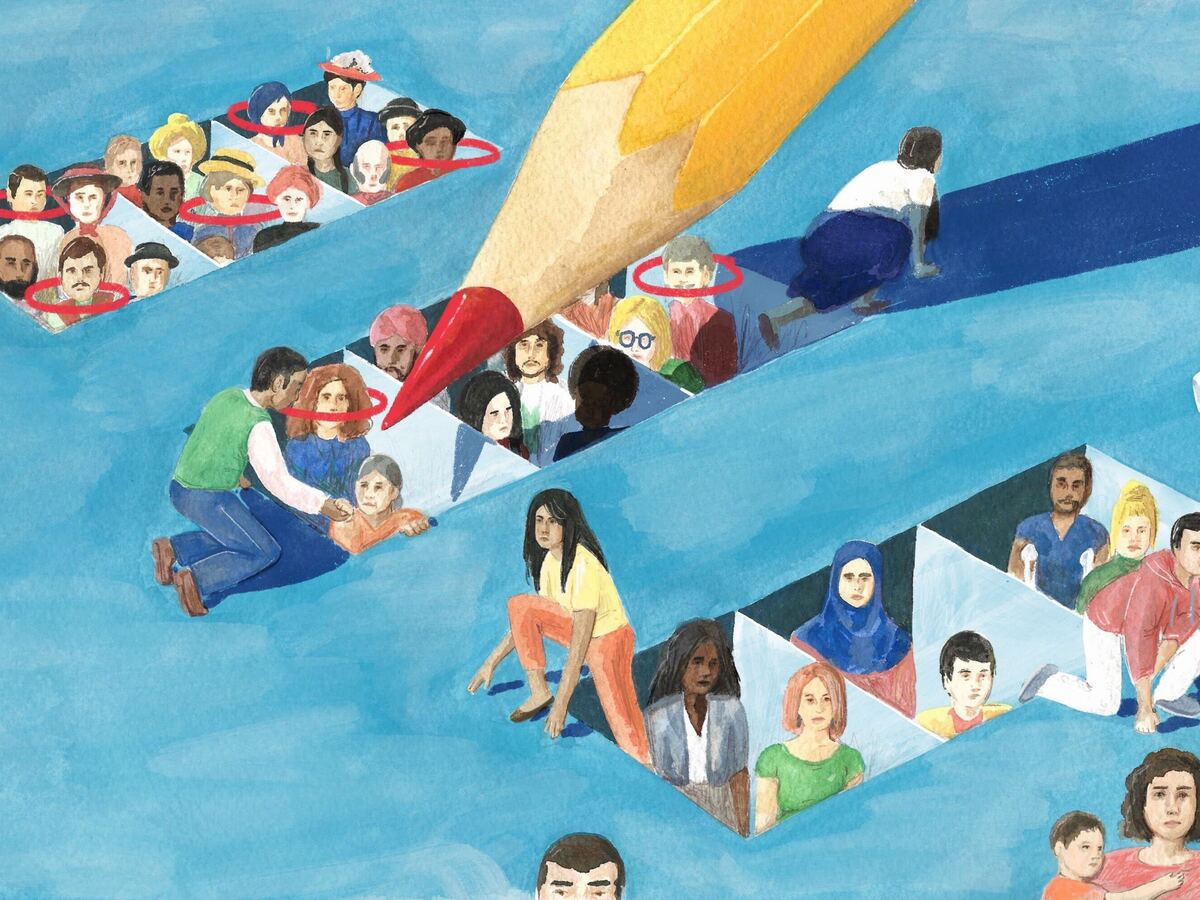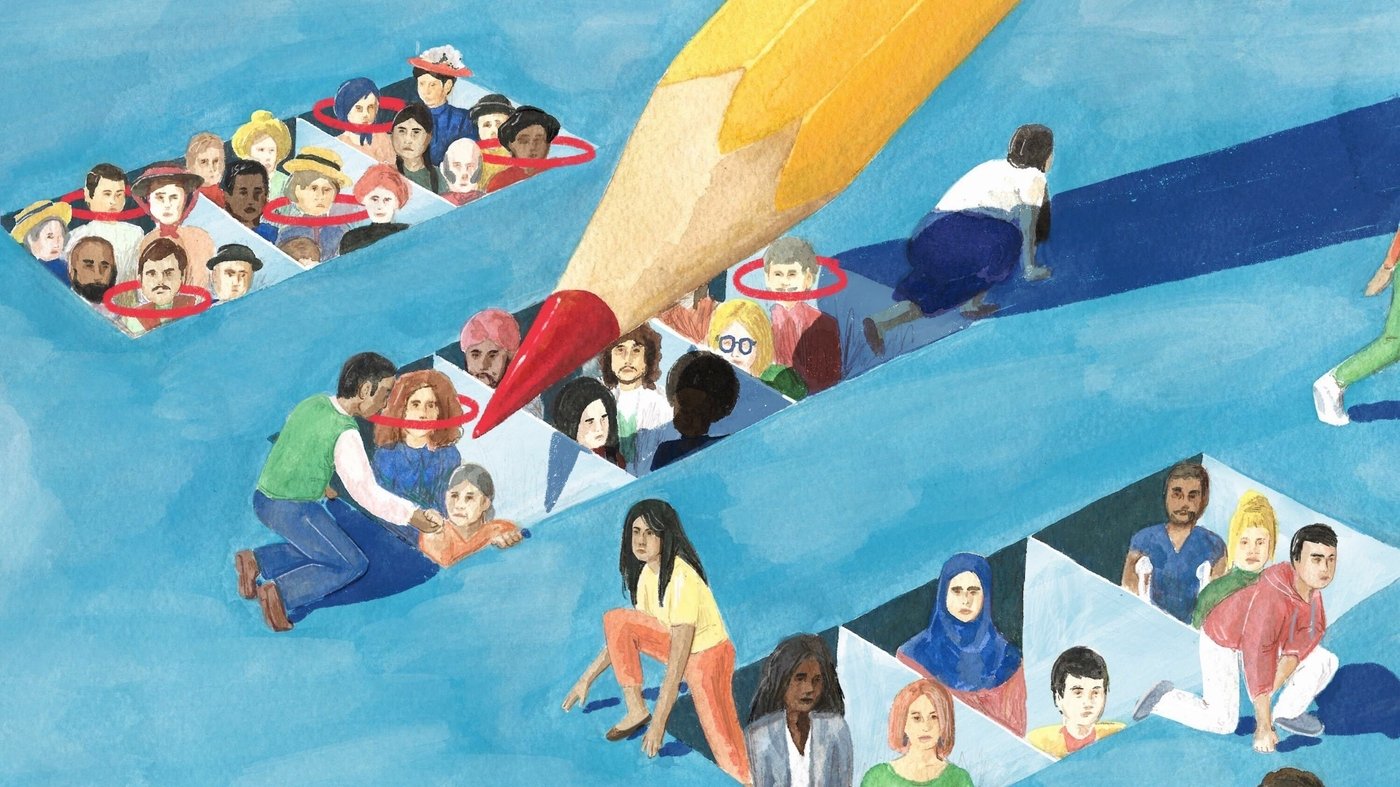

Throughout April, we’ve been telling stories that coincide with the census — the one time every decade everyone in the U.S. is asked to think about their racial identity—whether they like it or not. And in each of our episodes, we’ve led with a question: Who counts in 2020?
For our final episode in the series, we asked this question to some of our favorite artist-philosophers of society: poets. After all, April is National Poetry Month, and we wanted to bring you some beautiful (and challenging) words to sink into and savor. We talked to poets of color about who we are and who counts in 2020. Danez Smith, Franny Choi, Kaveh Akbar, Natalie Diaz, and Jesús Ivan Valles each read us a poem and told us what it means, for them, to count and be counted.
The idea for a poetry episode first came when host Shereen Marisol Meraji read Natalie Diaz’s poem “American Arithmetic.” It’s a poem about what it means to be counted by the government as a Native American—in Diaz’s case, as a Mojave woman and member of the Gila River Indian Tribe.
As Diaz points out in her poem, Native Americans make up less than one percent of the population of America, but police kill them at higher rates than any other racial or ethnic group, according to the CDC. In her poem, she writes that Native Americans “do a better job of dying by police than we do existing.”
Listen to Natalie Diaz read “American Arithmetic”
Shereen asked Natalie Diaz to share her thoughts about the poem, and what being counted means to her.
This interview has been edited and condensed for clarity.
How do you think your poem speaks to this question of who we are and what it means to be counted?
I really wanted to play with with numbers, with statistics. I think that’s one of the few ways Natives are often seen in this country, especially considering the census. What does it mean to be counted by the census? What are the impacts of it? What does it mean to not be counted by the census?

I think a lot about what visibility and invisibility mean. I think in some ways, because I’m Native, I’m both. I’m invisible, in that there are certain ways that America has tried to erase my people, the Mojave people, as well as other nations. And I think there’s also a way that America has made us visible in ways that have become prophetic in certain instances, such as thinking of us as wounded, or only being victims. What does it mean to be visible and seen for your powerlessness?
How would you want to be seen instead?
One of the troubles with visibility in America is that the Western imagination, the American imagination is very uncomfortable with ideas of multiplicity. And in order for me to be fully seen, to be seen as fully whole, America has to be able to see me for all of the things I am. For all of the languages I carry in me, for all of the ancestors I carry in me, for all of the different stories I carry in me.
One of the biggest problems with being American is that it wants me to be one thing. It wants to see me as it needs to define me, or needs to pin me down. I need to try to bend it and break it, so that it sees me in all the different ways that I am. [And] not just the ways that I have been and am today, but all the ways I might yet be.
How do you think this poem helps bend and break these misconceptions of you?
Race is something very interesting when we’re talking about Native peoples, because we actually don’t want to be a race. We are nations within ourselves; we are peoples of this land. We are so connected to that land that in a way, we are the land. And when we’re considering Indian law, or the way America has dealt with Native peoples, for the government to reduce us to a race means that they’re actually trying to dislocate us and cut us off from our land.
Every 10 years, Americans are asked to check a box on the census indicating their race. Are you planning to fill that out?
I don’t fill out the census. There are several American processes or paperwork trails that I tend to avoid. The census is one of those.
For me, I try to be intentional or careful about how I let myself be counted. I think there are very strong arguments for why I should allow myself to be counted. I think right now, with the ways I’m thinking about language, body and land, I’m trying very hard to to find ways to subvert the ways my body is always presented by this country.
All the poems featured in the episode:
Danez Smith: “what was said at the bus stop“
Franny Choi: “Turing Test_Love”
Kaveh Akbar: “Do You Speak Persian?”
Natalie Diaz: “American Arithmetic”
Jesús Ivan Valles: “(Un)documents”

Felecia Phillips Ollie DD (h.c.) is the inspiring leader and founder of The Equality Network LLC (TEN). With a background in coaching, travel, and a career in news, Felecia brings a unique perspective to promoting diversity and inclusion. Holding a Bachelor’s Degree in English/Communications, she is passionate about creating a more inclusive future. From graduating from Mississippi Valley State University to leading initiatives like the Washington State Department of Ecology’s Equal Employment Opportunity Program, Felecia is dedicated to making a positive impact. Join her journey on our blog as she shares insights and leads the charge for equity through The Equality Network.





